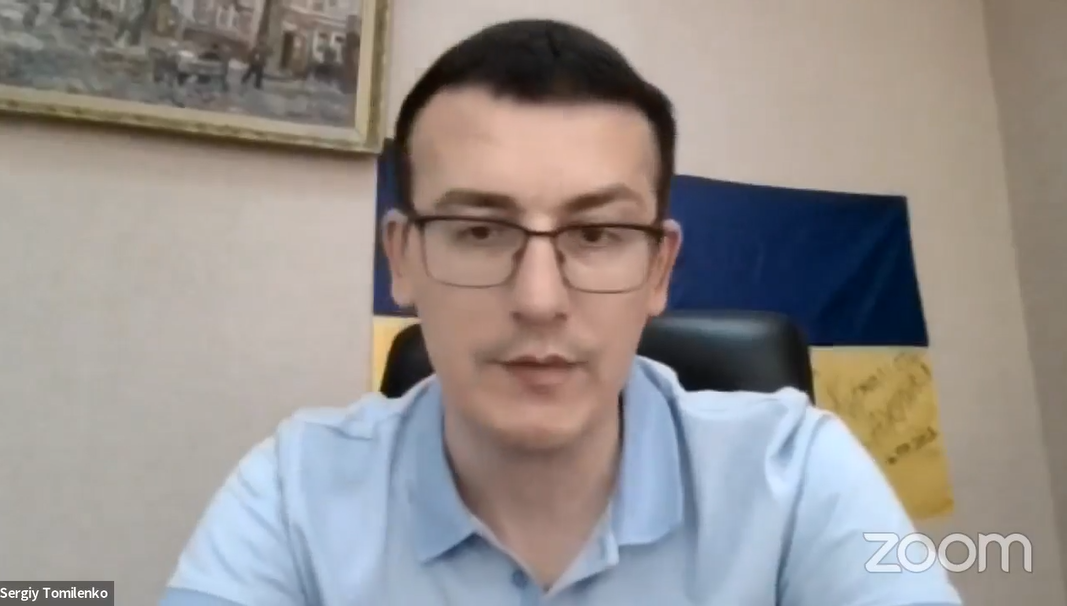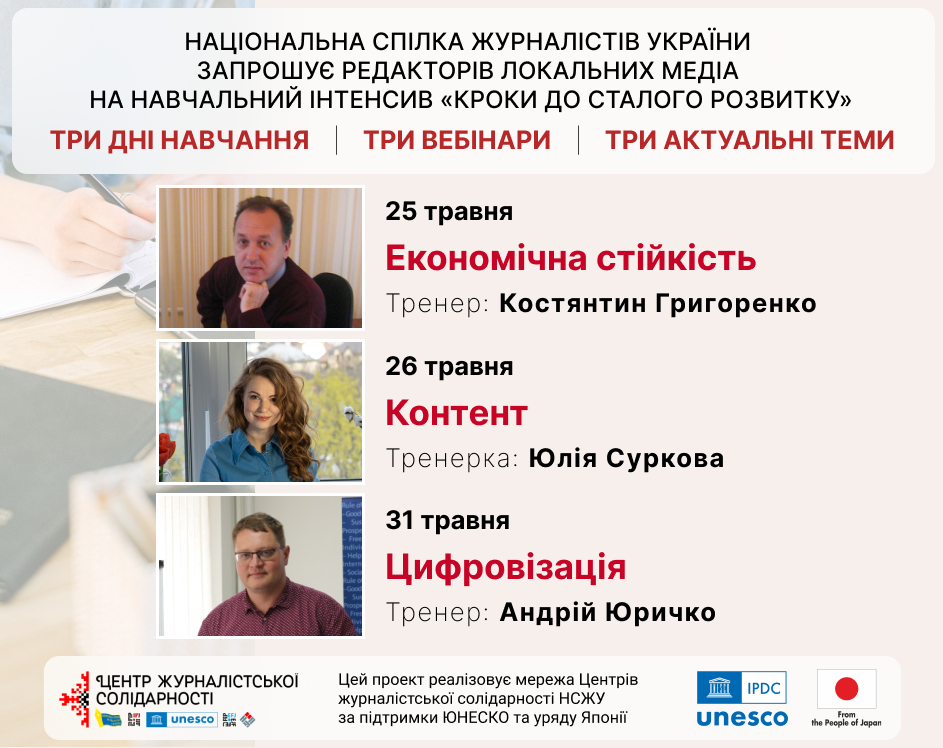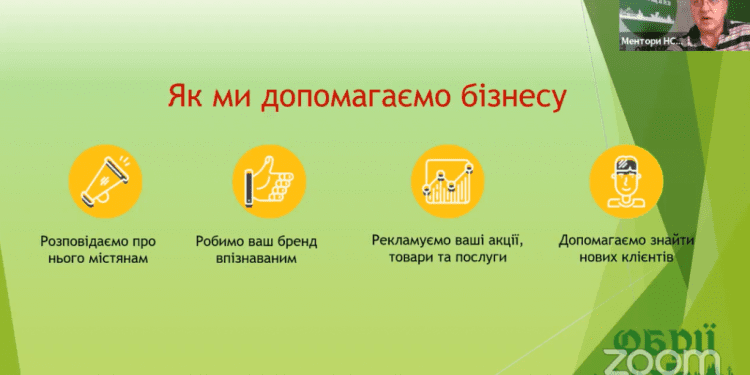No Ukrainian media is able to ensure complete economic independence in the conditions of war. But it is possible to save part of the income and a certain economic efficiency, and for this purpose, the editors rely on the exchange of experience and on training.
“Despite the war, Ukrainian media editors are trying to ‘stay afloat’ by obtaining certain funds for their publications from advertising, sales, and subscriptions,” notes Sergiy Tomilenko, the President of the National Union of Journalists of Ukraine (NUJU). “Responding to the request of media editors, primarily regional ones, the Union decided to hold a series of public webinars, in which all those willing to participate, and experienced media professionals who have proven their competence in practice act as trainers.”
The training takes place on the ZOOM platform and is broadcast on NUJU’s Facebook page.
According to Sergiy Tomilenko, these webinars will be a continuation of the educational and awareness project called Steps To Sustainable Development, focused on individual mentor support of print media from the front-line and de-occupied territories. Twenty-seven newspapers are taking part in the project carried out by the NUJU with the support of the Japanese government and UNESCO.

The program has three directions:
- achieving economic stability (mentor – NUJU Secretary/editor-in-chief of the Obrii Iziumshchyny newspaper, Kostiantyn Hryhorenko);
- content and journalistic ethics, communication with children and traumatized people (mentor – military journalist Yuliya Surkova);
- interactive journalism and digitalization (mentor – media trainer of the Academy of the Ukrainian Press Andrii Yurychko).
The NUJU also conducts public webinars under the same directions.

“Print media publishers should not limit their advertising projects to printed space,” Kostiantyn Hryhorenko noted during the May 24 webinar. “Obrii Iziumshchyny offers comprehensive advertising services, which include placing information not only in the newspaper but also on the website and social media networks such as Facebook, Instagram, YouTube, and Telegram, as well as on printed products (posters, calendars, plans, diagrams, etc.). These can be banners, videos, articles, and posts on Facebook and Instagram. It’s worth mentioning that the main source of income for our publication is still the printed newspaper. But financial institutions and insurance companies already prefer websites and social media. Always look for new approaches and innovations. Today, the best way is to combine a printed newspaper with digital platforms.”

As earlier reported, one of the NUJU’s priorities is to help and support the sustainability and stability of local media. So far, thanks to partner support, it has already been possible to print at least one issue (as a rule, the first issue after a long break) of 25 newspapers for the front-line and de-occupied territories of Ukraine.
About UNESCO. UNESCO is the United Nations Educational, Scientific, and Cultural Organization. It contributes to peace and security by promoting international cooperation in education, sciences, culture, communication, and information. UNESCO promotes knowledge sharing and the free flow of ideas to accelerate mutual understanding. It is the coordinator of the UN Action Plan on the Safety of Journalists and the Issue of Impunity, which aims to create a free and safe environment for journalists and media workers, thus strengthening peace, democracy, and sustainable development worldwide. UNESCO is working closely with its partner organizations in Ukraine to provide support to journalists on the ground.
The designations employed and the presentation of material throughout this digest do not imply the expression of any opinion whatsoever on the part of UNESCO concerning the legal status of any country, territory, city, or area or its authorities or concerning the delimitation of its frontiers or boundaries.
The authors are responsible for the choice and the presentation of the facts contained in this digest and for the opinions expressed therein, which are not necessarily those of UNESCO and do not commit to the organization.
NUJU information service

 THE NATIONAL UNION OF
JOURNALISTS OF UKRAINE
THE NATIONAL UNION OF
JOURNALISTS OF UKRAINE
















Discussion about this post